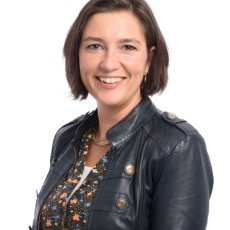
Dynamics between adults involved in youth religious formation
There is a growing focus on the importance of raising children together, with the Dutch Youth Institute identifying this as a key priority and aiming to strengthen the pedagogical civil society around children and young people. Research consistently demonstrates that a robust pedagogical civil society is linked to positive outcomes, including academic success, moral development and well-being.
In Christianity, there has always been a focus on the value of raising youth together, with regard to their religious formation. This is exemplified by the baptism ceremony. While parents bear the initial responsibility for their child's religious education, the congregation is committed to providing support. We also observe this in the relationships between schools and churches, and by the inspiring initiatives that emerge from this collaboration. The school-church-family triad is a well-established concept. Children who grow up within this triad receive consistent guidance on the same values and principles from school, church, and the family, fostering their growth in the Christian faith.
The traditional school-church-family triad is still in place in only a limited number of locations in the Netherlands. Even in these locations, there is minimal collaboration between the adults involved in the triad. Religious formation is a private matter, mainly conducted within the family. What is the recommended approach for the Christian community to engage in this matter in a constructive manner? There are many positive outcomes to the relationship between school and church, but it is not without reason that there is a book called 'De zoet-zure relatie tussen school en kerk', which can be translated as 'the sweet and sour relationship between school and church'. Furthermore, how can you collaborate effectively on religious formation with other adults who hold disparate ideals? How can you cooperate on youth religious formation if you don’t even know the other adults involved? In short, there are numerous unanswered questions surrounding this subject.
Research objective and research question
This research project aims to gain a deeper understanding of the underlying ideals that play a role in the dynamics between adults who are involved in the religious formation of children and young people from the Protestant Church in the Netherlands. Additionally, this research aims to contribute to a strengthened dynamic between these educators.
The research question is:
How do ideals play a role in the dynamics between parents and other adults who are formally and informally involved in the religious formation of Protestant Christian children and youth in the 21st century, and how might these dynamics be influenced as they explain their ideals to one another in order to strengthen religious formation?
Research method
This qualitative study is comprised of two phases. The initial phase is designed to facilitate comprehension and clarification regarding the dynamics between the adults involved in youth religious formation. To this end, an initial mapping of the individuals involved in this process is conducted. Subsequently, these individuals are surveyed and interviewed in focus groups about their upbringing ideals with regard to youth religious formation and the way they deal with the dynamics between them and other involved adults.
The second phase of the research is a participatory action research project. Participants engage in a dialogue about their upbringing ideals and the ways in which they implement these in the religious formation of children and young people. Rather than avoiding potential tensions, the project addresses them directly. From this joint discussion, participants identify opportunities for collaboration that will benefit youth religious formation.
Part of future-oriented church-being
This research is part of the project, "Future-oriented Church”. The objective of this research is to contribute to the renewed self-understanding of the church with regard to its role in the religious formation of children and young people. In particular, it seeks to identify how churches can collaborate with others in this process.
Researcher
Corina Nagel-Herweijer MSc
Supervisors
Dr. Ronelle Sonnenberg
Prof. Dr. Jos de Kock

